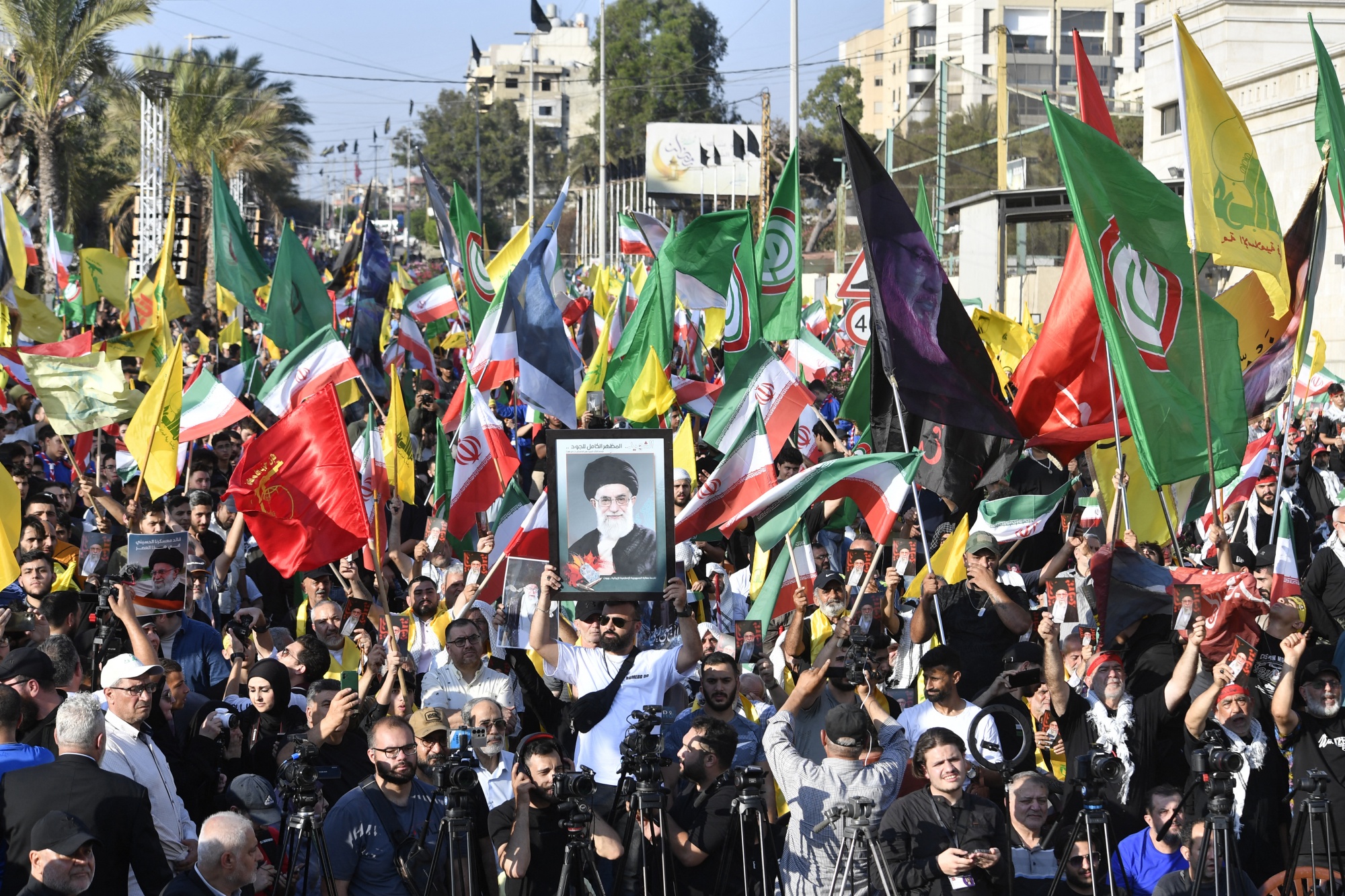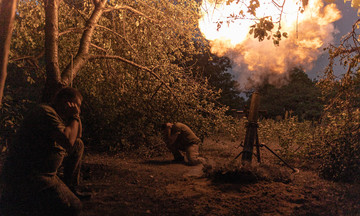On 25/6, Hezbollah released a statement saying Iran's victory "was clearly demonstrated through the precise and painful attacks" against Israel, as well as its "swift response to US aggression against Tehran's nuclear facilities".
The group sent its "most sincere congratulations" to Iran and praised the "glorious divine victory". Hezbollah, which clashed with Israel last year, asserted that "this is only the beginning of a new historical phase" in the confrontation with the US and Israel.
They expressed "unwavering and enduring support for Iran, its leadership, and its people," emphasizing that "any surrender, appeasement, or concession will only increase the arrogance and dominance of the enemy over our region".
 |
A crowd gathers in front of the Iranian embassy in Beirut, Lebanon on 25/6 following a call by Hezbollah. Photo: AFP |
A crowd gathers in front of the Iranian embassy in Beirut, Lebanon on 25/6 following a call by Hezbollah. Photo: AFP
Mohammed Raad, a Hezbollah leader, stated that Iran has been a "deterrent force in the region", demonstrated by its steadfastness and how it stands up to its enemies.
Hundreds gathered outside the Iranian embassy in Beirut, Lebanon, on 25/6, responding to Hezbollah's call to celebrate the "peak struggle" and "sacrifice" of the Iranian people against Israel and the US.
"We are happy with the victory that Iran has achieved, despite the raids they have suffered and the attacks by the US and Israel to prevent them from continuing their nuclear program," said 42-year-old Ahmed Mohebbi.
Hezbollah was formed with the backing of Iran's Islamic Revolutionary Guard Corps in the early 1980s to fight Israel. The group was severely weakened in its most recent confrontation with Israel, with most of its senior leaders killed and much of its weaponry destroyed. During the 12 days of the Israel-Iran conflict, Hezbollah remained largely silent, not launching any attacks towards Israel.
The conflict erupted on 13/6 when Israel launched preemptive airstrikes targeting several Iranian military leaders, nuclear scientists, uranium enrichment facilities, and its ballistic missile program. Tehran fired over 550 ballistic missiles and about 1,000 drones into Israeli territory in response while Tel Aviv continued widespread airstrikes.
On the morning of 22/6, the US launched airstrikes on three key Iranian nuclear facilities. Iran retaliated the following night with a missile strike targeting a major US airbase in Qatar but caused no casualties. A few hours later, President Donald Trump announced that the parties had reached a ceasefire agreement, effective from 24/6.
According to the Iranian Ministry of Health, Israeli attacks killed at least 627 civilians and injured over 4,800. In Israel, 28 people were killed, and more than 2,500 were injured.
After the ceasefire, both sides declared victory. In a speech on 24/6, Israeli Prime Minister Benjamin Netanyahu said Israel had eliminated two existential threats to the country: the threat of annihilation by nuclear weapons and the threat of annihilation by 20,000 missiles that Iran is building.
Netanyahu declared that Operation Rising Lion had brought "historic victories" and would be remembered for generations, emphasizing that if he had not acted, the country would have faced destruction.
Huyen Le (According to AFP)












